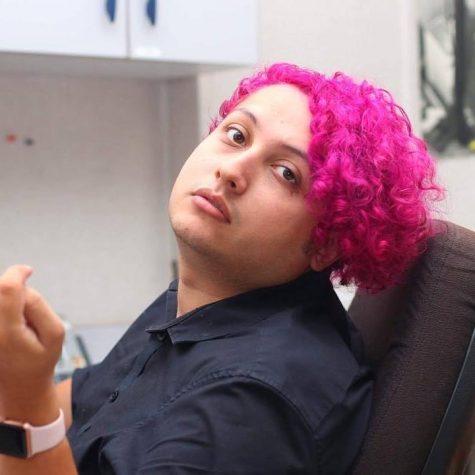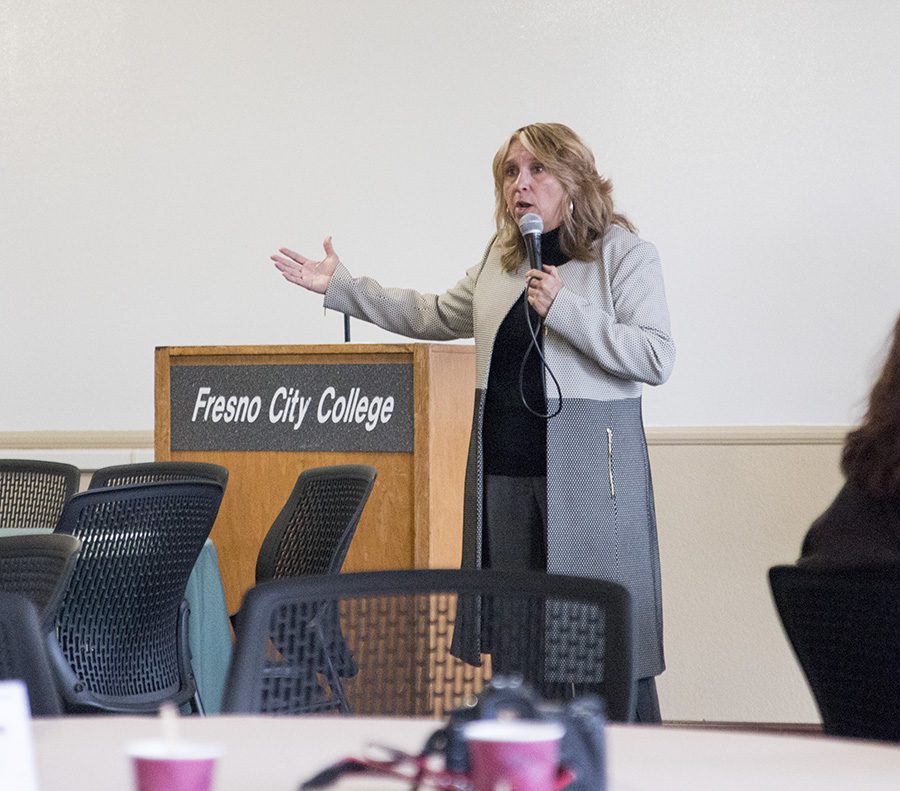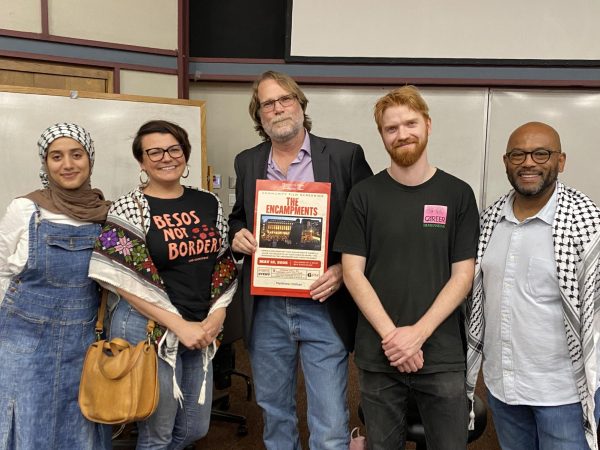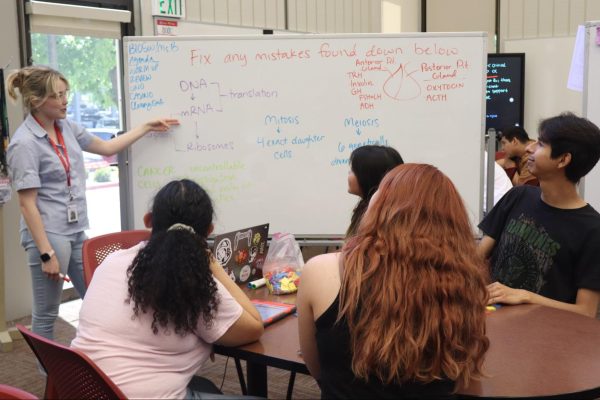Goldsmith Talks Budget, Design Science, Counseling Reform
Photo by: Tommy Tribble
Fresno City College President Carole Goldsmith addresses students and faculty at an open forum on Thursday, Feb. 22, 2018.
Fresno City College President Carole Goldsmith discussed the budget, the new west Fresno campus and reforms to the counseling department during an open forum on Feb. 22 in the staff dining room.
“I’m a firm believer that our savior is not Sacramento or Washington, D.C.,” Goldsmith said, addressing a room of teachers and administrators. “It’s probably not the district either. It’s us.”
Previously, school funding was determined solely by the number of students enrolled. That may change in California, Goldsmith says.
“Fifty percent of our allocation will be based on enrollment,” she said. “Twenty-five percent will now, proposedly, be based on a poverty index.” That index will be calculated based on the number of students enrolled in the Board of Governors grant, which waives tuition fees for students.
Goldsmith said that 25 percent of the allocation will be performance based and that performance evaluation will lean heavily on the completion of associate degree to transfer programs.
While the the budget is a status quo budget which will likely maintain present funding, “energy costs will not remain the same,” Goldsmith said. Neither will retirement obligations. Goldsmith stressed the need to utilize current, limited resources in meaningful ways.
The president also spoke about the first phase of the plan in FCC’s deal with the Design Science High School, which serves 225 students and is located across the street from Fresno City College.
“But I am happy to report that Dean Lorraine Smith has found space in our Health Science building,” Goldsmith said. “We’re going to be bringing over some office space and the first group of kids.”
Later in the forum, Lataria Hall, the new vice president of Student Services, discussed changes in the counseling department.
“If you’re having heart problems, you go to your cardiologist,” Hall said. “You’re not going to go to your family practitioner.”
“Right now, we’re expecting our counselors to understand all of our degrees and the pathways and what is the academic requirement,” she said. Breaking the counselors up into specialized teams will allow them to perform “more deliberate, specific counseling.”
Hall explained that the counseling office “is transitioning from transactional counseling to relational.” She said relational is a more involved, intensive, and intrusive process where a team of counselors would begin guiding students after they declare their major and “make sure they have a sense of belonging.”
“There’s an acknowledgement that that we can do better, and our students deserve it,” Goldsmith said, regarding counseling reform.
Towards the end of the forum, one student confronted Goldsmith about illegal activities on campus such as students smoking marijuana and locker break-ins in the art department. Goldsmith said the administration was working on different locker room systems in order to prevent future break-ins, as well as repair the vandalized lockers.
The president conceded that the administration needed to do a better job of enforcing smoking rules but emphasized that the police were doing their best and writing citations.
“As a college, this is the type of discourse we want to encourage,” Goldsmith said later. “I’m glad to see that there really is a culture to speak truth to power here.”

Tommy Tribble is the 25-year-old editor in chief of the Rampage, formerly the opinion editor. Tommy is an English major, a writer, an aspiring novelist,...






